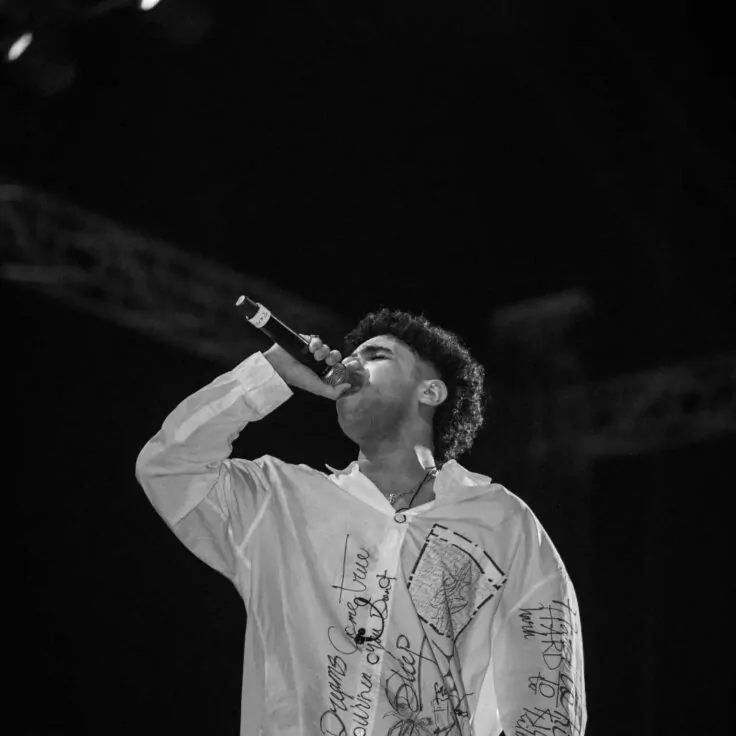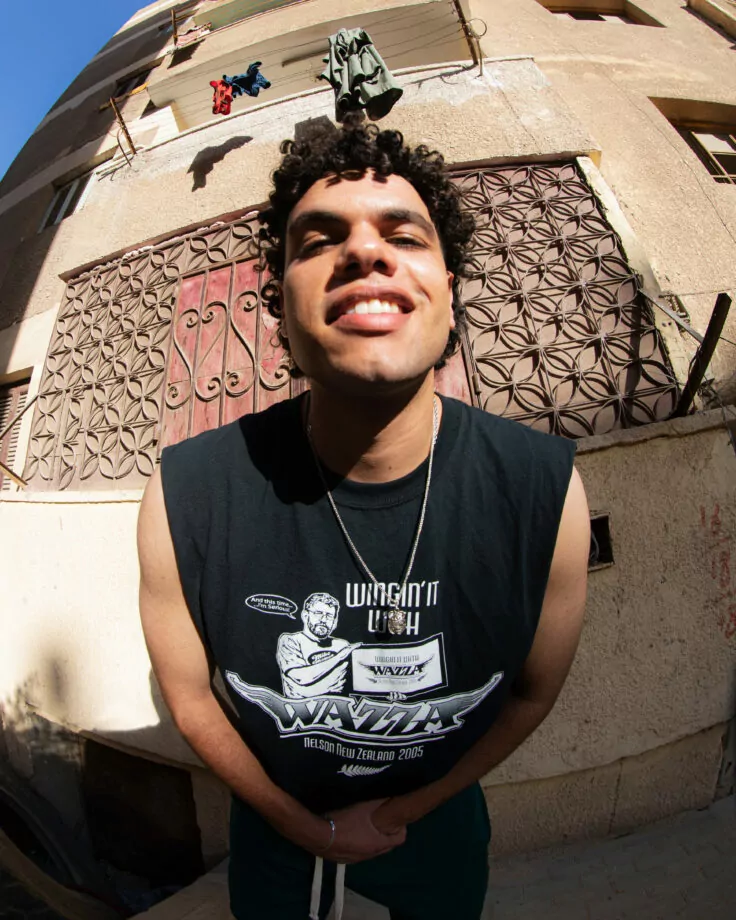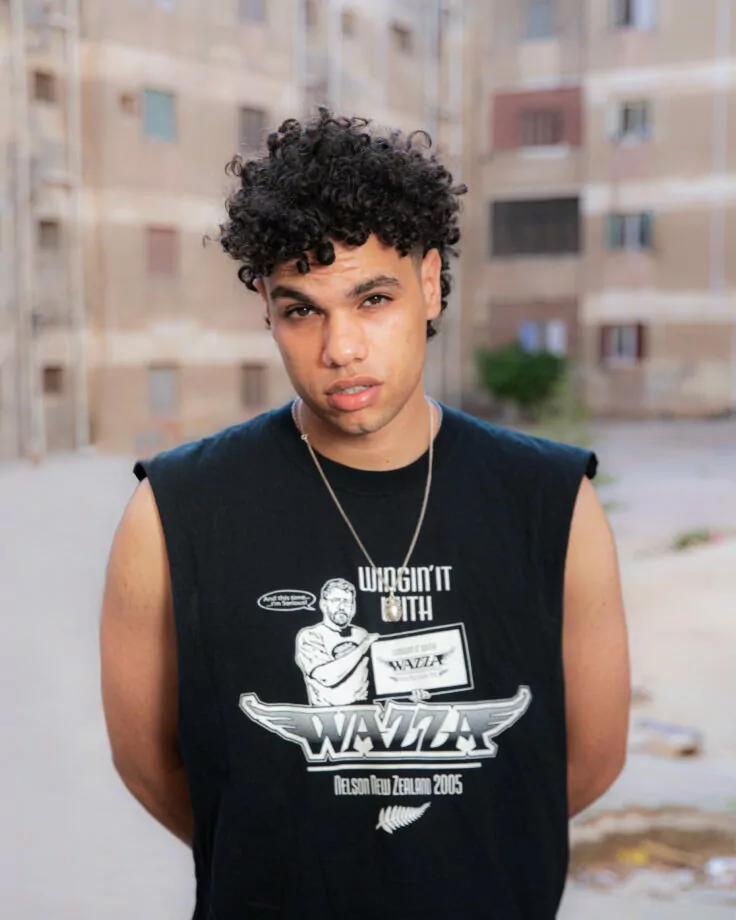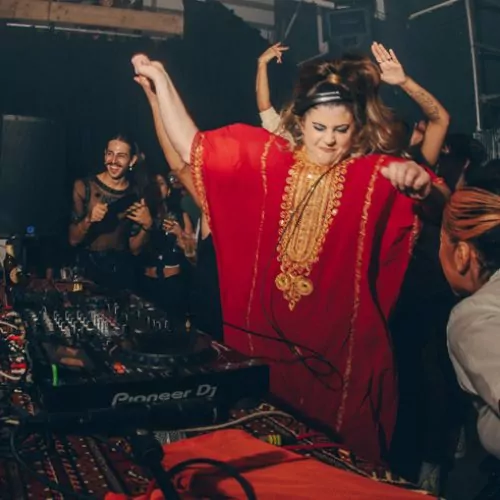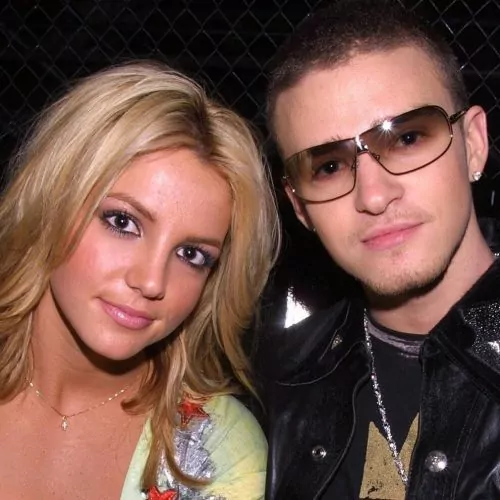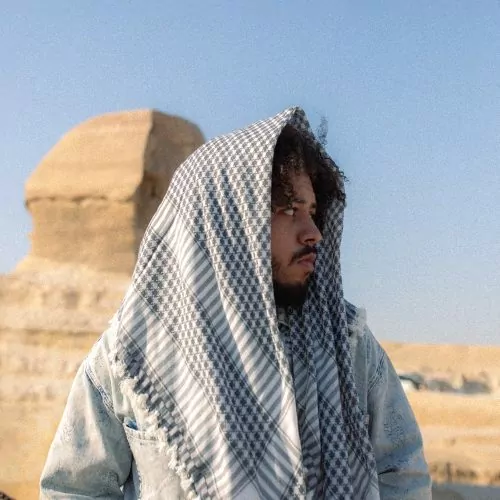“Growing up in Shaikh Hassan, the streets, my challenging upbringing, the language we speak, what I saw every day, and the music I grew up on from MTV and later the internet— it all came together to spark my passion for hip-hop,” says Cairo-based rapper Ziad Zaza, recalling the small rural town he was born and raised in.
Adamantly part of the next crop of up-and-coming MENA rappers, the artist is widely considered one of Egypt’s best representatives inside a recording booth, as the microphone champion has been making serious waves over the years thanks to his hard-hitting flow, punchy lyrics, and impetuous stage presence. But the journey was far from being without its challenges, as the 23-year-old has had to drum up excitement around his peculiar sound and vernacular in a place where it is not so common. In fact, the rapper was the first artist to introduce hip-hop to his native Shaikh Hassan— a small city located over 100km southwest of the capital city, Cairo.
“Being from a place where no rappers had come out of before fueled me to bring my experiences to the table and be part of the music scene. I had so much to say coming out of Shaikh Hassan, and it wasn’t easy at first but I always believed in my vision and was stubborn enough to keep going. I started working with Beatroot and that’s when things started to scale and become more professional,” Zaza told MILLE.
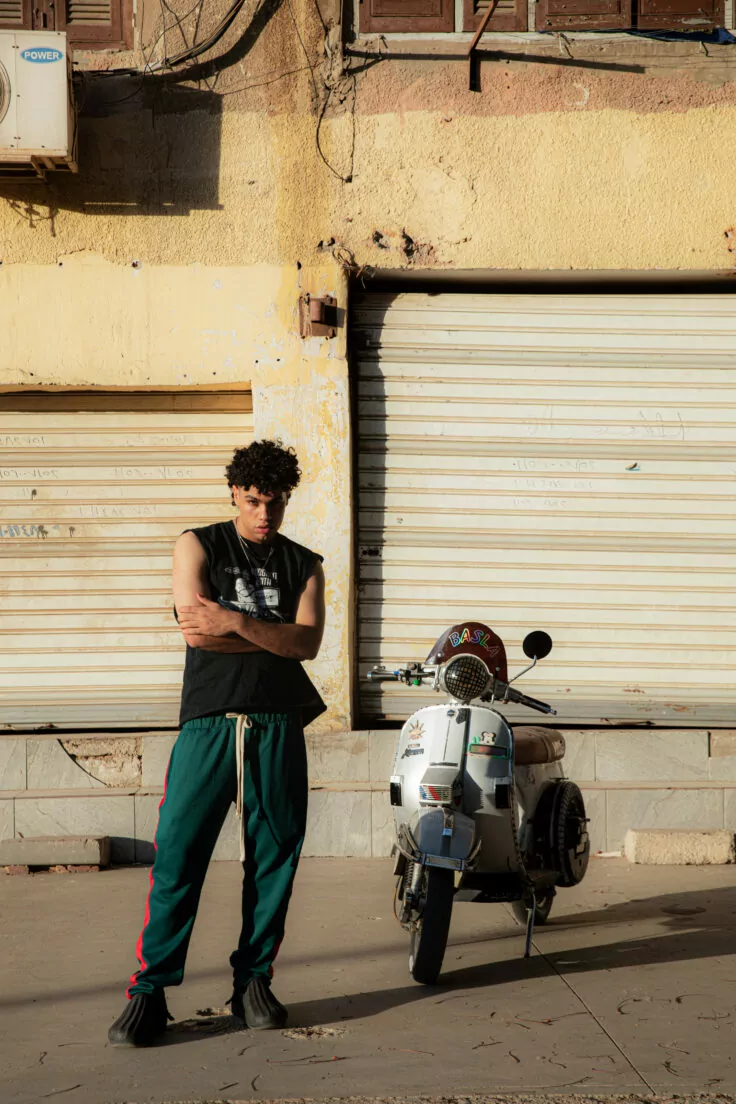
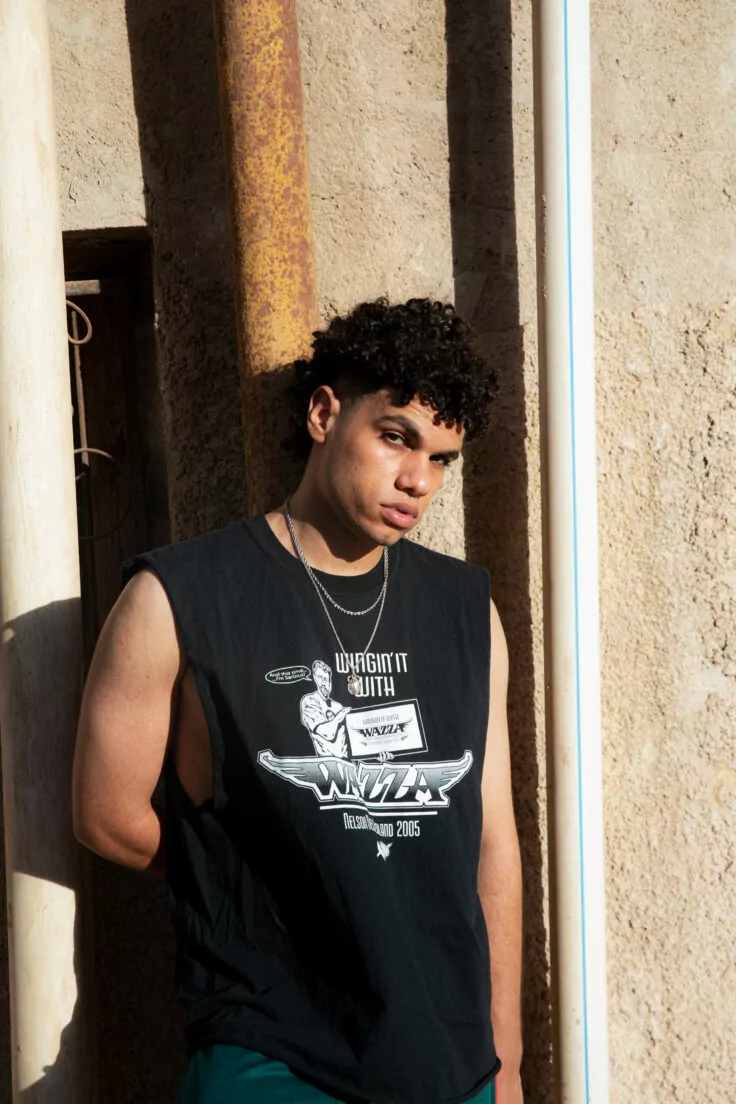
“Hip-hop has always been about the streets and keeping it real. And today, our wave of hip-hop is trying to bridge the music industry with street culture and our experiences as a new generation. Staying authentic and connected to my roots is what keeps me relatable to my audience. At the end of the day, I don’t let my ego control me, and whenever people praise me, I keep saying I haven’t done anything yet. I always remind myself that I have a lot more to accomplish,” he continued.
The rapper and songwriter has been a driving force in the region’s scene, generating buzz and garnering recognition each time he drops another single or project. This month, the MC released his second album and first full-length record, dubbed ZAZA ELWASEEM (which translates to “Zaza the handsome” in English), which comes after two hard-hitting EPs and a debut album titled El Rayes, shared over the past year and a half.
Displaying a broad spectrum of emotions, the 13-track-long album follows a similar path as his previous sonic statement by delving deep into personal issues, new experiences, anger, love, and warmth, all wrapped in an envelope of genre-bending music. In a joint collaborative effort with prominent music producers in the scene, including Ismail Nosrat, Elwaili, Riff, Mahib Sleat, Omar Kief, Dezel, and Bari, the album blends various distinct genres, such as drill, oriental, reggaeton, afro, hip-hop, and deep house, while showcasing the talents of featured artists like Karim Osama, Ali Loka, and Dizzy along the line.
“I’d say that ZAZA ELWASEEM continues where El Rayes left off,” shares the rising star “I spent almost a year working and developing the sound of this album, collaborating with what I consider as some of Egypt’s top music producers to bring my vision to life,” he explained, revealing that most of the tracks were already recorded by the time of the release of El Rayes — which came out in November 2022— despite having explored some of their strengths in greater detail and depth with time.
“ZAZA ELWASEEM expresses a wider spectrum of emotions, there is still a lot of anger portrayed but there is much more love and vulnerability as well. The album dips into a variety of different genres and sounds, echoing the new experiences I’ve had over the past year but still maintaining my signature Zaza sound,” he admitted, emphasizing on his intrinsic desire to single himself out, go against the mainstream, and make sure his sounds resonates with authenticity, originality, and a sense of rawness that connects deeply with listeners.
“As the drill music scene started becoming oversaturated, I decided to experiment and push the boundaries of my artistry and reveal a more vulnerable side, and that’s when we put together the Wrangler Beeda EP, from the lyrics and music production to conceptualizing the visual direction. Though people were expecting more drill as a follow-up from El Rayes, I think they appreciated this new direction and were pleasantly surprised with seeing this more emotional side of me.” This deviance in trajectory can also tangibly be felt in his latest release.
Like any other vibrant realm of the arts, rap and hip-hop demand continuous experimentation and innovation to ultimately thrive and evolve. Daring to take risks, disrupting the status quo, paving the way for groundbreaking expressions, and pushing creative boundaries to new frontiers is a surefire way to leave an indelible mark and a footprint of identity behind. Now more confident than ever to explore and take risks with his sound, when reflecting on his early beginnings, ZAZA revealed he wished he had encouraged himself to be more stubborn. However, as French rapper Booba aptly puts it, there’s no time to dwell on past regrets as they are part of our intricate journeys and contribute to progress— a witticism that undoubtedly applies to ZAZA.
“Hip-hop is complex, with its many layers, movements, and subgenres,” he explained. “You have to express yourself in a raw and no-frills way that resonates with people. When I got into hip-hop, it felt natural— second nature. I began experimenting and finding new avenues to convey my thoughts in ways that others can relate to,” he reveals, which certainly compensated for his perceived lack of steadfastness in his early days.
Voir cette publication sur Instagram
Une publication partagée par ZIAD ZAZA | زياد ظاظا (@ziiadzaza)
When asked about the future, music still seems to make up a great deal of what will continue to drive him forward despite revealing wanting to explore other realms in the world of culture and arts, enriching his creative palette to the fullest while still beating to the rhythm of rap for as long he can.
“I’m excited to explore new creative avenues and to be honest, I’m already dabbling with quite a few already. Acting has always been one of my dreams. So recently, I’ve been working with acclaimed Egyptian director Amr Salama on a new short film that was inspired by my track, 60 Geneh, musically produced by Ismail Nosrat, developed by Beatroot records, and produced by Cinerama Films. It’s set to be screened at a few film festivals shortly. I’m excited to see what people will think of it.”





